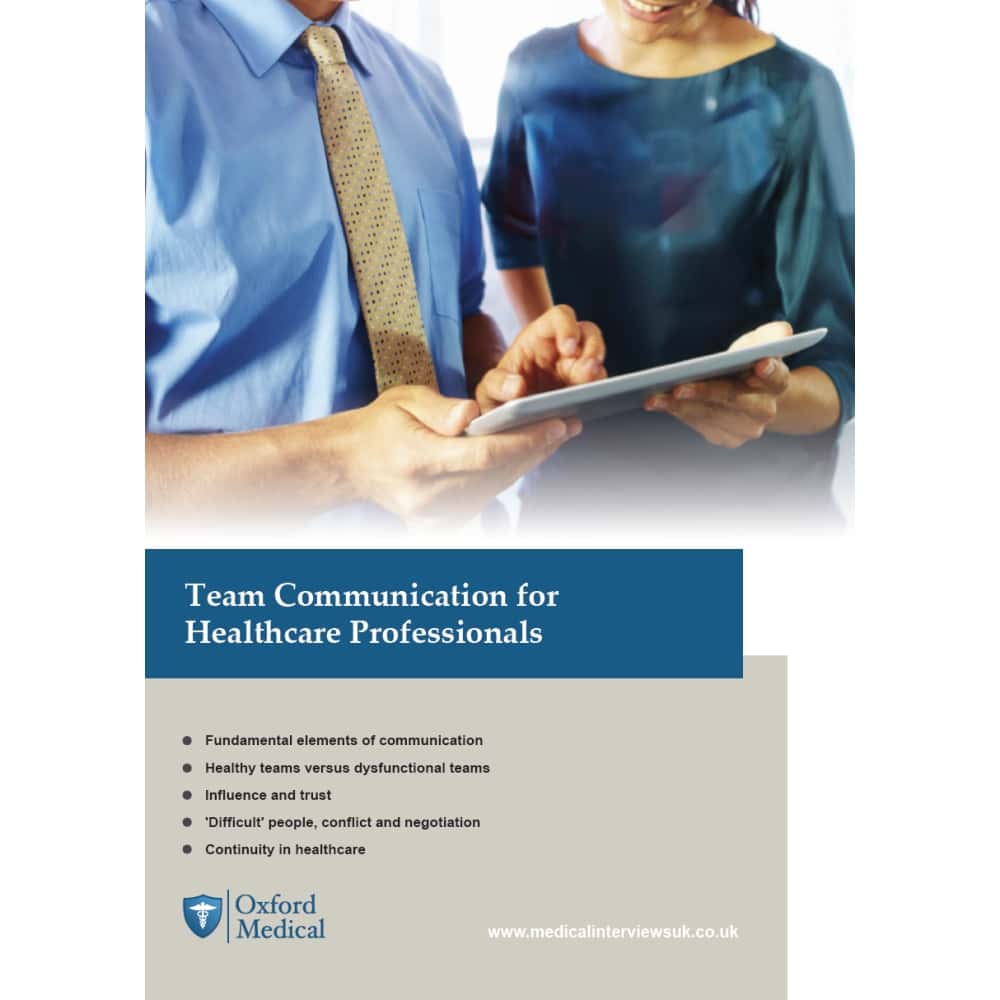Description
Overview
Team communication has become an essential skill for the modern healthcare professional. Truly effective, efficient and compassionate patient care cannot be achieved by working in isolation. Teams come in all shapes and sizes. There are large hierarchical teams, small multidisciplinary teams and project teams. Some are formal and some informal. Some established for the long term and some are transient, only existing for a single critical event. You need to become expert at joining teams, working with others in difficult circumstances and welcoming others into your team.
In this book we concentrate on your abilities to communicate effectively with four broadly overlapping groups:
- The people you work with – your team members
- The people you seek to lead – your followers
- The people who you should follow – your leaders
- Other groups of people we rely on or who rely on us – other teams
What is the format?
We introduce a variety of concepts, some old and some new, connecting them together in a manner which helps you to deepen your understanding of human interaction. We relate these directly to healthcare, regularly encouraging you to reflect on your current practice via a series of exercises, enabling you to make practical changes for improvement.
Choose between a PDF download for instant easy access or a printed book to receive by post when you place your order. The digital download PDF version works equally well as the printed copy for making notes as you can type your thoughts and responses from the various exercises directly into the document and save this for future reference.
Please note: If you choose to attend either our Advanced Team Communication Skills or our 2-Day Advanced Communication Skills Course for Doctors then you will receive a copy of this book as part of your package. It has been designed to provide structured support for reader and course delegate alike, acting as a comprehensive resource to support ongoing improvements.
See our 15 page preview below.
Contents
Chapter 1: Introduction
1.01 About this book and the Healthy Connections Model
1.02 Teams in healthcare
1.03 The importance of team communication in healthcare
1.04 Your greatest challenges
Chapter 2: Healthy teams
2.01 The relevance of clarifying healthy teams
2.02 Basic instinct
2.03 Dependence, independence and interdependence
2.04 The Healthy Teams Model
2.05 Natural progression of team development
Chapter 3: Dysfunctional teams
3.01 The relevance of defining dysfunctional teams
3.02 Basic instinct 2
3.03 Arrested development
3.04 Five dysfunctions of a team
3.05 Team interaction challenges in healthcare
3.06 Cognitive bias
Chapter 4: Fundamental elements of communication
4.01 Defining what we mean by communication
4.02 From transmission to interpretation (and back again)
4.03 Perception and beliefs
4.04 Effective listening
4.05 Team communication patterns
4.06 Achieving and maintaining rapport
4.07 Are you ok?
4.08 Attention to connection
4.09 Positive or negative?
4.10 Engaging with ‘Them’
Chapter 5: Influence and trust
5.01 Clarifying influence
5.02 Basic instinct 3
5.03 Trust
5.04 Tactics to influence others
5.05 Identity and reputations
5.06 Feedback and challenge
5.07 Group discussions and meetings
5.08 Talking to the ‘right’ people
5.09 Reflections on Chapter 5
Chapter 6: Difficult people, conflict and negotiation
6.01 Why are other people difficult?
6.02 ‘Difficult’ personalities
6.03 People who are reacting to difficult circumstances
6.04 Inflammatory behaviours
6.05 Being assertive
6.06 Who are you today?
6.07 Approaches to conflict and negotiation
6.08 Collaborating
6.09 And if that doesn’t work…
6.10 Reflections on Chapter 6
Chapter 7: Continuity in healthcare
7.01 ‘Adjourning’
7.02 Shift handovers – taken for granted?
7.03 Referral of care
7.04 Reflections on Chapter 7
Chapter 8: Summary and final reflections
8.01 Summary and final comments
8.02 Your final reflections






